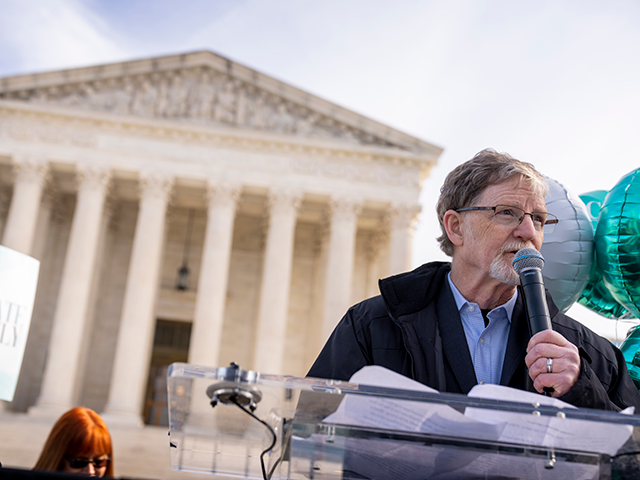Supreme Court Justice Neil Gorsuch cited the treatment of Christian Colorado cake baker Jack Phillips during oral arguments in another religious liberty case on Monday, stating that Philips was made to “go through a reeducation program” for declining to bake cakes for same-sex weddings.
In a back and forth with Colorado Solicitor General Eric Olson regarding the case 303 Creative LLC v. Elenis, Gorsuch challenged Olson’s assertion that there have been no cases in the past several years in which the state failed to protect religious liberty.
Gorsuch cited the case Masterpiece CakeShop v. Colorado Civil Rights Commission, in which the Supreme Court notably reached a 7-2 decision in 2018 that the commission acted with hostility toward religion when it ordered Phillips to make cakes for same-sex weddings and conduct so-called sensitivity training for his employees. In his exchange with Olson, Gorsuch characterized those trainings as a “reeducation program.”
Gorsuch: "Jack Phillips [the cake baker in Masterpiece Cakeshop] had to go through a reeducation program, did he not?"
CO Solicitor General: "It was a training to educate him about Colorado law.
Gorsuch: "Some might be excused for calling that a reeducation program." pic.twitter.com/tuKx7MPG9Z
— Greg Price (@greg_price11) December 5, 2022
The exchange went:
Gorsuch: Mr. Phillips did go through a reeducation training program pursuant to Colorado law, did he not Mr. Olson?
Olson: He went through a process that ensured he was familiar with —
Gorsuch: It was a reeducation program, right?
Olson: It was not a reeducation program.
Gorsuch: What do you call it?
Olson: It was a process to make sure he was familiar with Colorado law.
Gorsuch: Someone might be excused for calling that a reeducation program.
Gorsuch’s use of the term “reeducation program” is significant, given the authoritarian left’s penchant for such programs in the United States surrounding marxist racial and gender ideologies, as well as in China, where “reeducation” is applied to those seen as disloyal to the Chinese Communist Party (CCP), Uyghurs in Xinjiang, and other purportedly undesirable minority groups.
The exchange took place during oral arguments in a case about a Christian website designer who alleges that Colorado law would force her to design wedding websites for same-sex couples in spite of her convictions.
The case involves artist Lorie Smith, owner of graphic design firm 303 Creative LLC, and Director of the Colorado Civil Rights Division Aubrey Elenis (and several other division officials). Smith wants to expand her business to include designing wedding websites, “promoting her understanding of marriage.” She also wants to post a statement on her website “explaining that she can only speak messages consistent with her faith,” according to the cert petition. Attorneys argue that the Colorado Anti-Discrimination Act (CADA) would require her to “create custom websites celebrating same-sex marriage” and would prohibit her statement of faith.
The Supreme Court agreed to take up Smith’s case just four years after they ruled in favor of Phillips. However, in Phillips case, the justices did not rule on the central question in his case: whether being made to bake a cake for a same-sex couple violated his First Amendment right to freedom of speech. In Smith’s case, the Justices have ultimately agreed to answer “whether applying a public accommodation law to compel an artist to speak or stay silent violates the Free Speech Clause of the First Amendment.”
The case is 303 Creative LLC v. Elenis, No. 21-476 in the Supreme Court of the United States.

COMMENTS
Please let us know if you're having issues with commenting.